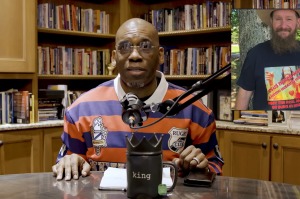Regulation of Church, Nonprofit Political Speech 'Untenable,' Report Finds
Laws regulating the political speech of churches, religious organizations and other nonprofits are an "untenable mix," a report by the Commission on Accountability and Policy for Religious Organizations found. The Commission, which was formed by the Evangelical Council for Financial Accountability and includes representatives from all major faith traditions in the United States, was formed in response to a 2011 inquiry by Sen. Charles Grassley (R-Iowa).
"Given the untenable mix of vagueness in the law, violations without consequences, limited and inconsistent enforcement, and the lack of respect for the law and its administration that inevitably results, something needs to change," Commission Chairman Michael E. Batts wrote.
The report focuses on three primary issues: the prohibition on participation in political campaigns by 501(c)(3) nonprofit groups, excise taxes and prohibitions against political expenditures by 501(c)(3)'s, and the application and administration of laws related to 501(c)(3) involvement in political campaigns.
The prohibition on political speech in untenable, the report claims, because it is too vague, unevenly enforced, infringes free speech, and is ignorant of the history and tradition of political engagement by religious groups.
More precisely, the vagueness of the law makes it difficult to administer because nonprofits are confused about what is or is not allowed. The Internal Revenue Service has been selective in its enforcement of the law, prosecuting some while ignoring others who violate the law. The law is so often defied that the government appears to not even expect the law to be followed. And, political engagement is promoted and valued within some religious traditions.
"The IRS will not (and should not) enforce the prohibition in such faith communities en masse," the report argued.
For several years, pastors have protested the tax code prohibition on political speech from religious groups through "Pulpit Freedom Sunday." On Pulpit Freedom Sunday, held this year on June 9, pastors across the country agree to speak out on a political issue in their sermons. The prohibition, the protestors argue, violates their First Amendment protections against government infringement on their speech and religious liberty.
The report recalls the history of how the controversial part of tax code was passed into law in the first place. Sen. Lyndon Johnson (D-Texas) added the provision to the tax code in 1954 on the Senate floor with a voice vote. There was no national debate, or even congressional debate, before it became law.
The report offers five recommendations for reforming the law. It does not recommend a complete repeal of all prohibitions on political activity by religious groups and 501(c)(3)'s. Rather, it offers a series of recommendations that would clarify what type of political communications and expenditures should be, and should not be, allowed. For instance, the report recommends maintaining a ban on financial donations to political campaigns by religious and 501(c)(3) groups.
"The groups who find the current prohibition to be troubling, limiting, frustrating, and even potentially unconstitutional, do not generally seek the ability to take tax-deductible contributions made by donors and relay them to political campaigns," the report clarifies. "Rather, they generally seek freedom of expression in the context of their ordinary tax-exempt activities."



























